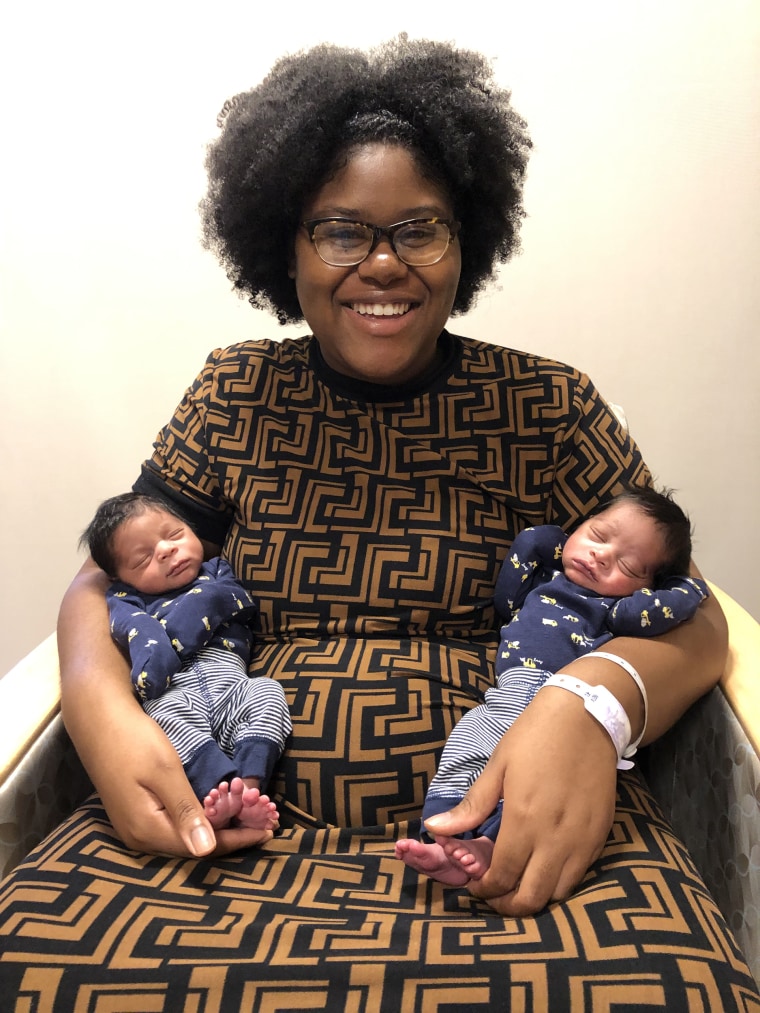Alexzandria Wolliston could use a spa day.
The 25-year-old from West Palm Beach, Florida, just welcomed her second set of spontaneous twin boys in one year with coparent Curtis Quinn, 26.
Fraternal twins Kaylen and Kayleb, arrived on Dec. 27, roughly 10 months after identical twins Malakhi and Mark, who were born on March 13.

Wolliston, who is also mom of 2-year-old daughter, Ar’Mani, wasn’t scared when she went for an ultrasound in June, and two heartbeats appeared on the monitor.
“I come from a big family. I knew I’d be able to handle it,” Wolliston TODAY Parents. “My only fear was, is my body going to be able to handle this?”
It turned out that Wolliston’s second pregnancy was easier than the first. But she also moved in with her mother for extra support.
“I walked everywhere,” she revealed. “People would stop me in the supermarket and say, ‘You are so strong. How are you still up and moving?”

Wolliston believes her four boys were a gift from her maternal and paternal grandmothers. Both women lost sets of twins.
“I think about that a lot and it keeps me positive,” she said. “I feel like they gave me their kids.”
Twin births account for 3% of all live births, according to Dr. Michael Cackovic associate of professor of maternal fetal medicine at The Ohio State University.
While the chances of having two sets of twins in one year is "pretty rare," Cackovic has seen it before.
"It does happen," Cackovic told TODAY Parents, noting that some groups have a higher prevalence of twins. He pointed to Igbo-Ora, Nigeria, which has one of the highest rates of twin births in the world.
"About 50 in a thousand are twin births," Cackovic said. "Their makeup is that they super ovulate. They ovulate more than one egg."
Other risk factors for twin pregnancies include use of fertility treatments, older maternal age, higher BMI and having a family history of twins on the mother's side, according to Dr. Thomas Molinaro, a reproductive endocrinologist at RMA of New Jersey.
"While it seems unlikely to have two sets of twins with a probability of about 1 per 10,000 it may be higher in women with a strong family history," Molinaro told TODAY Parents.